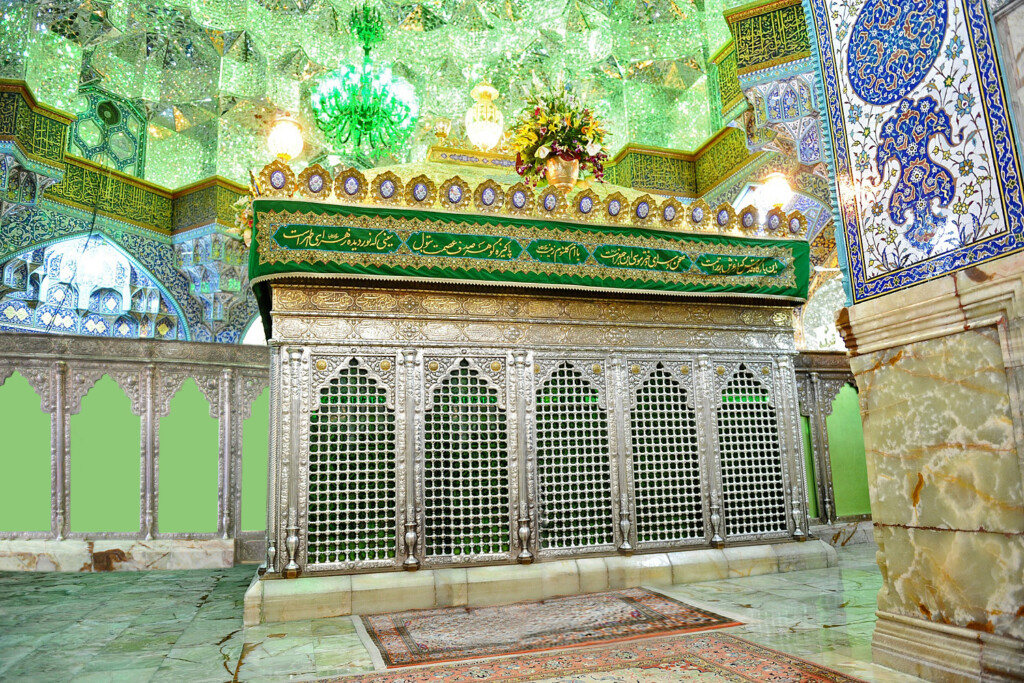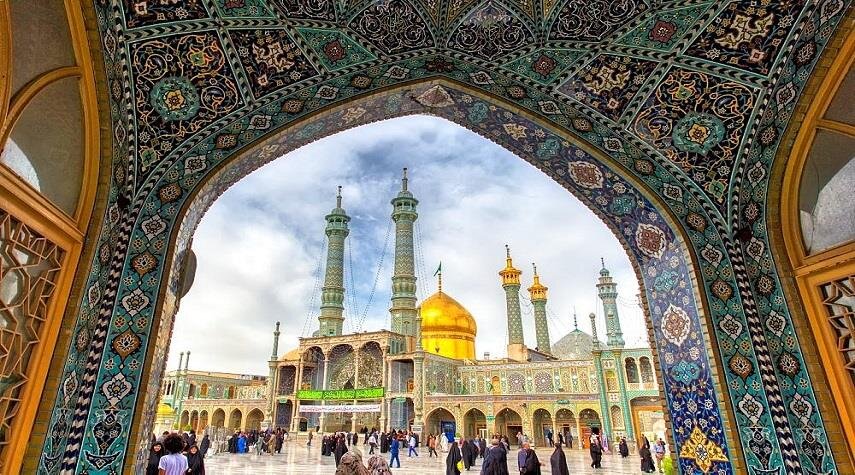It is unlikely that those who lived at the time of Lady Ma’sumah anticipated the effect she would have on millions of people after passing away until today. With her presence in the city of Qum – the centre of the teachings of the Ahl al-Bayt – she has proven to be a powerful source of inspiration, spirituality, warmth, energy, and love.
Every person impacts others’ lives, for better or for worse. Some affect their family and friends, others also affect their own neighborhoods, communities, regions, nations, or even humanity at large. This depends on a variety of factors, such as their talents, their available support and resources, their sincere effort, the context in which they carry out their work, and their overall capacity to affect humanity. Those with the greatest impact are at the peak – the leaders of light who guide others towards God – and people continuously benefit from their services even after they die. And at the bottom are those who lead others towards eternal punishment.
But what is interesting is that there are exceptional people whose influence is not revealed to the ordinary people during their lives. Perhaps they lived for a short period or did not have support. Or perhaps they were unknown to the people of their era. It is only after they die that they are appreciated.
Lady Ma’sumah was one of those exceptional figures Although narrations from the Imams reveal her high value and status, those who lived during her era – even though they knew that she was the pure, pious, and knowledgeable daughter of the Imam – did not envisage her influence on millions, if not billions of people. She became the primary host for humanity in the most important centre of learning for the teachings of the Ahl al-Bayt: the Islamic Seminary of Qum. Despite its ups and downs, it has remained continuously active since it was first founded, and continues to flourish, year after year. Imam al-Sadiq said
Kufa will become empty of the faithful, and knowledge will go out of Kufa like a snake goes out of its lair. Then the knowledge will appear in a land called Qum, which will become the centre of knowledge and merits. No one, not even women at home, will be unaware of the religion of God. This will be close to the time of the reappearance of our Qaim (Imam Mahdi).(1)
For Qum to be a centre of learning, it must have a powerful source of spirituality, warmth, and love. It must attract millions of people to delve into its treasures and light and return to their homelands to contribute to the spread of the beautiful teachings of the Ahl al-Bayt to others.
No one among people knew that God, in His wise plan, decreed that Lady Ma’sumah would leave Medina, her hometown, for the city of Marv, where her brother Imam al-Rida was summoned by the Abbasid caliph Ma’mun. During the stops she made in several cities along the way, Lady Ma’sumah was warmly welcomed by lovers of the Ahl al-Bayt, who were honoured to benefit from her wisdom and knowledge.

Either due to illness or poison, the Lady was unable to continue the journey to Mary to visit her brother. Instead, she proceeded to the city of Qum, saying, “I have heard from my father that Qum is the centre of our followers (the Shia)”.
Her presence drew crowds of local and foreigners alike to greet her. The spiritual atmosphere and positive energy produce by this Lady has never ceased to attract tens or hundreds of thousands of people from around the world who feel tranquil upon arrival, despite it being a foreign land. Many foreigners share their feelings of tranquility when they come to Qum. While people usually feel like strangers in a new land with an unfamiliar language and culture, these people feel at peace and at home in Qum. A hadith from Imam al-Sadiq says:
God has a sanctuary, which is Mecca. The Messenger of God has a sanctuary, which is Medina. The Commander of the Faithful [Imam ‘Ali] has a sanctuary, which is Kufa. Qum is the small Kufa. Heaven has eight gates, three of which face Qum. A woman descended from me whose name will be Fatimah bint Musa will die there. Through her intercession, all my Shia will go to heaven? (2)
1. Bihar al-Anwär, vol. 60, p. 213; Tarikh-e Qadime Qum, p. 95.
2. Bihar al-Anwar, vol. 57, p. 228.


